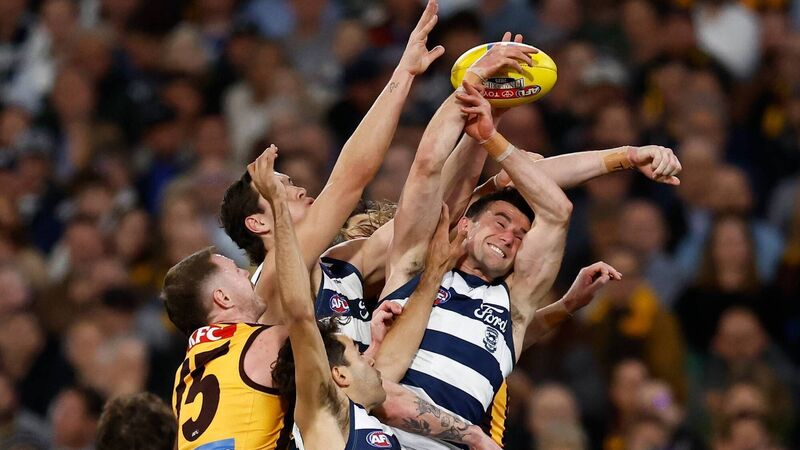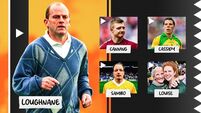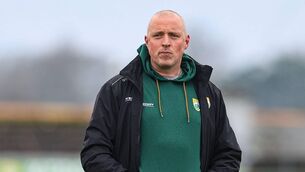The AFL have learned from Gaelic football, so what we can learn from them?

Mark O'Connor of the Cats and Blake Hardwick of the Hawks compete for the ball during the AFL Second Preliminary Final match between the Geelong Cats and the Hawthorn Hawks. Pic: Michael Willson/AFL Photos via Getty Images
In the arc of Paul Earley’s sporting life, there has always been a special tie to Australia.
He was recruited by Melbourne and later managed Ireland in the International Rules series. He wanted to explore a new world. They wanted to learn more about his, too.











